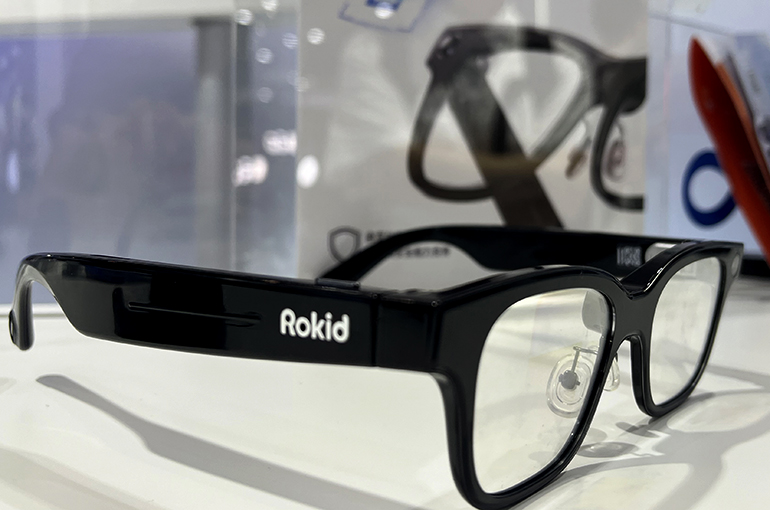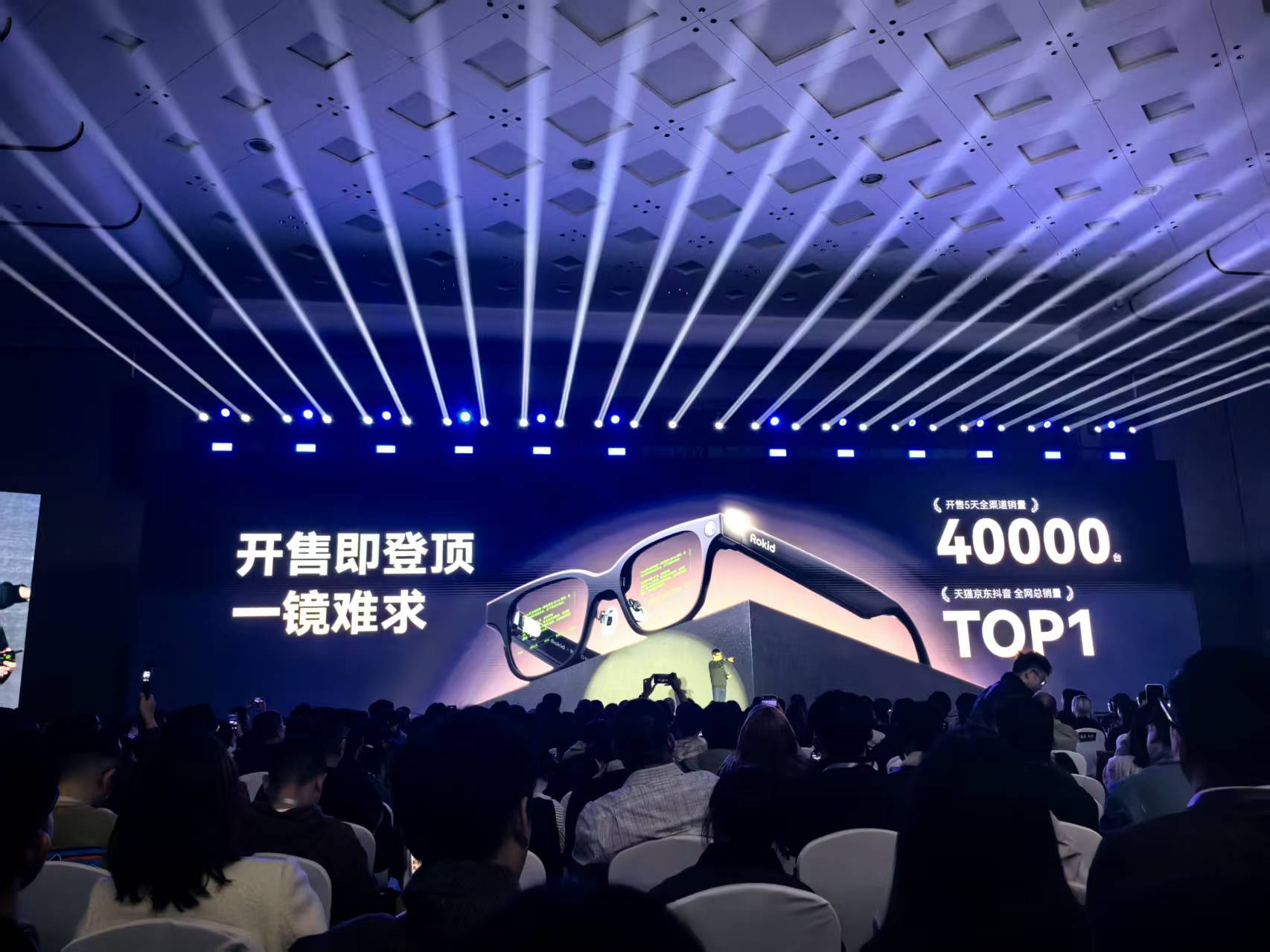 China's Rokid Targets Mass Market With New Bolon AI Smart Glasses
China's Rokid Targets Mass Market With New Bolon AI Smart Glasses(Yicai) Nov. 17 -- Rokid, a Chinese producer of mixed reality glasses, has launched its new artificial intelligence smart glasses under its partnership with Bolon Eyewear, aiming to expand to the mass market.
Rokid's glasses have rapidly "broken into the mainstream," said founder and Chief Executive Misa Zhu. Sales will exceed one million next year, which can even double thanks to the Bolon tie-up, and even reach 2 to 3 million units in 2027, he added.

The Bolon AI Glasses have no display and come in three versions priced at CNY2,199 and CNY2,599 (USD310 and USD366), featuring a "Wind, Forest, Fire, Mountain" series. In addition, Rokid has delivered more than 200,000 of its Rokid Glasses with a display since launching pre-orders on Sept. 1, including shipping around 50,000 overseas, far exceeding its original plan to deliver between 100,000 and 150,000 units a year.
Shifting user demographics show that the product is expanding beyond its early adopters, Zhu noted. The share of tech workers has dropped to 16 percent from nearly 50 percent, while 76 percent of users are aged 26 to 45 and come from industries including internet, public services, education, outdoor sports, and retail, he pointed out.
Rokid has already attracted 3,000 developers and nearly 5,000 enterprise partners, Zhu said, adding that "next year, the budget for developer contests will increase to CNY10 million (USD1.4 million).
In addition, Zhu announced that the Hangzhou-based company will launch the Rokid Glasses App Store in the future.
Rokid's software and hardware ecosystem continues to expand, supporting Tongyi Qianwen, DeepSeek, Doubao, Zhipu, and other large language models, having payment integration with Alipay and "AI Pay," collaborating with JD Technology on "One-Glance Shopping," supporting photo-based similar product searches, and allying with QQ Music, AutoNavi Maps, Flight Manager, and others to expand application scenarios, Zhu pointed out.
Third-party hardware, including screen protectors, clip-ons, and battery capsules, keeps emerging, with some accessories selling more than 1,000 units, Zhu noted, adding that "livestreaming will launch soon, but which platform will remain confidential for now."
Rokid's core competitive advantage lies in its open ecosystem, which is precisely what large tech companies find difficult to replicate, Zhu said. "We can connect to Tongyi Qianwen, DeepSeek, Doubao, and Zhipu, with many functions fully open, which is not easy for many big companies to achieve."
Regarding the entry into the smart glasses market of internet giants Baidu and Alibaba Group Holdings, Zhu noted that "we still respect the big firms, but Rokid's greatest advantage is that this is our only choice, all our bets are placed on this difference."
Low-cost products from Shenzhen-based Huaqiangbei are a more immediate challenge, Zhu noted. Some of its devices, including cameras with basic AI features, are extremely low-priced, he said, describing them as "shockingly cheap, but actually usable."
However, Rokid will not join such price competition, Zhu stressed. "It doesn't align with our company positioning, and objectively, we lack the capability to enter such price wars as startups without brand power have no pricing power."
The tie-up with Shanghai-based Bolon also expands Rokid's offline retail presence, with Zhu pointing out that around 20 percent of users "have never worn glasses before," and products sold through brick-and-mortar channels have "a return rate that's almost negligible, essentially zero," due to professional eye examinations and fitting services.
The biggest challenge for physical stores is "customer acquisition," and smart glasses offer a new source of traffic, said Pan Lu, chief operating officer of Xiamen Yarui Optical.
"In three to five years, phones will still exist, but glasses will be the main device, with phones revolving around them," according to Zhu. "Phones will serve as terminals for communication, computing, and storage, while interaction increasingly happens on glasses," he said, citing Elon Musk as saying last week that "phones will be replaced within five years, possibly by glasses."
"After the AI era, it will no longer be a group of people presenting their information to you, but a standard, reorganizing and packaging the knowledge system for presentation," Zhu noted. "We firmly believe it won't be phones, it won't be computers, it can only be smart glasses."
The industry "tipping point" will arrive when key conditions, including processors, microphones, displays, battery life, and pricing, all align, leading to an explosion like the "iPhone moment," according to Zhu.
Editor: Martin Kadiev